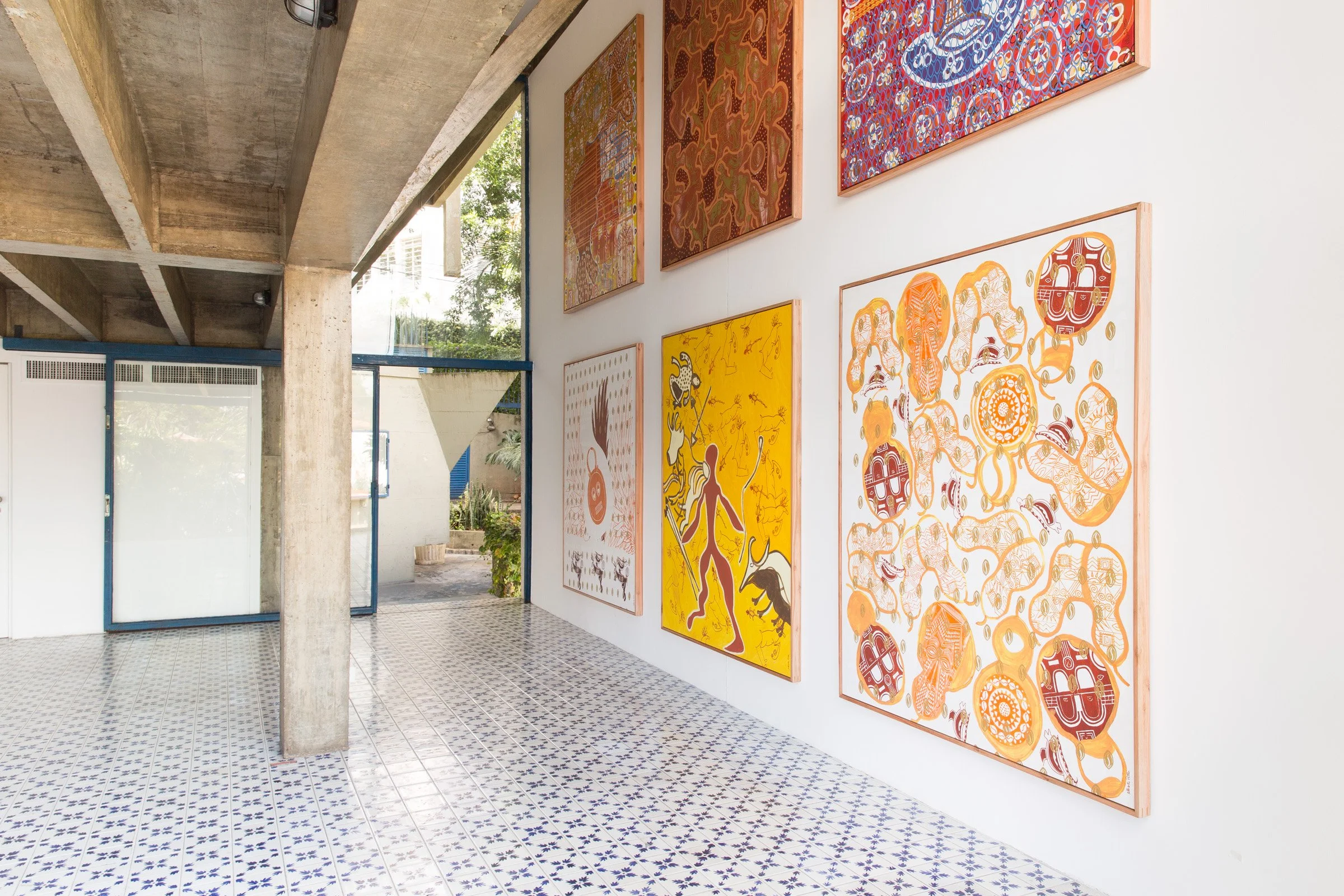“Whoever knows yesterday and today will know tomorrow, because the weaver's thread is the future, the woven cloth is the present, the woven and folded cloth are the past”, says a Fulani1 proverb, which applies with unusual precision to the artistic procedures of Alberto Pitta. For four decades involved with the production of serigraphs and prints that color the carnival parades of the most emblematic blocks of the Bahian black carnival, Pitta has with the threads, cloths and folds a deeper intimacy, built daily throughout his life. Watching the activities of his mother, Mãe Santinha de Oyá, an important ialorixá from Salvador, who was dedicated to richelieu embroidery and the education of children and adolescents in the Pirajá community – following the vocation community of Candomblé –, Pitta had from very early on an interest for cloths and for his commitment to bringing people together through words. He quickly understood that in the African tradition, from which he descends, clothing does not only respond to the utilitarian need to protect the body; it could also be a powerful signifying element, which inscribes man in nature and reconnects him to his ancestors, asserting itself as a support of language and social markers.































